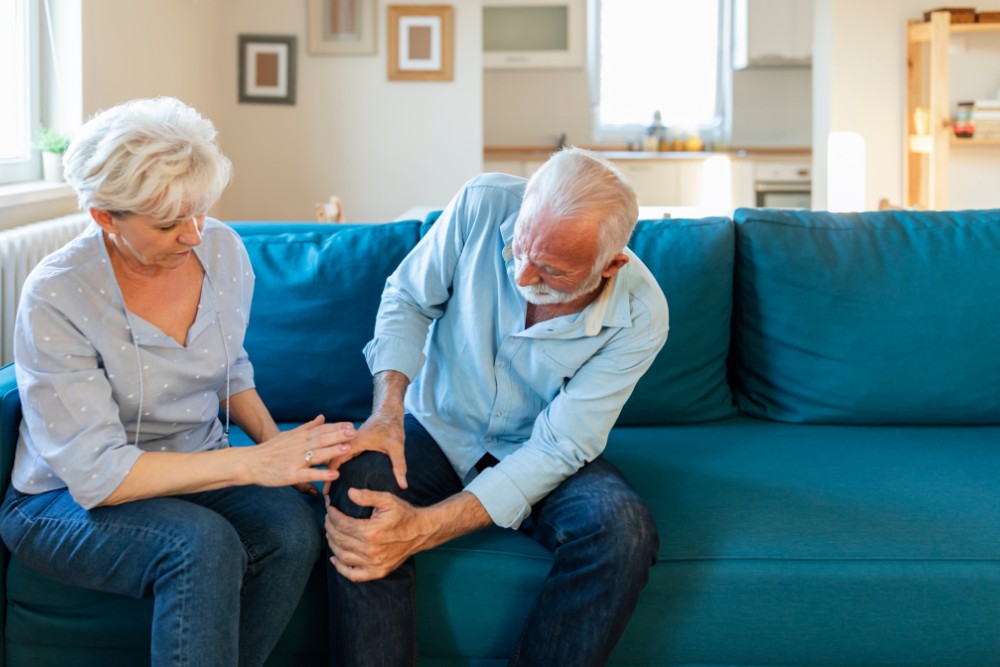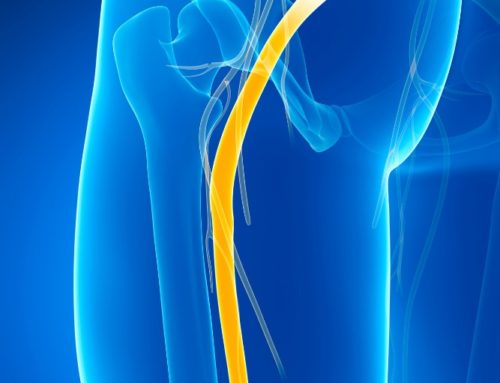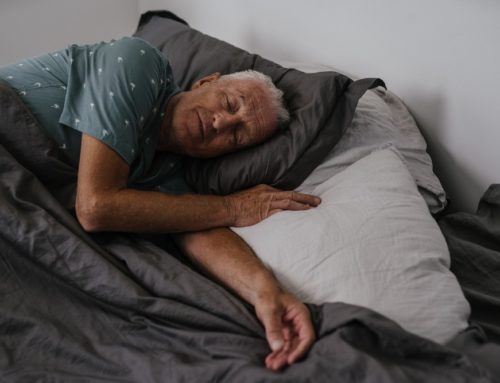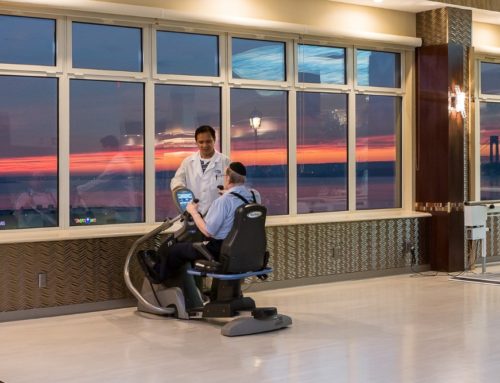Our bodies change as we get older, but we don’t always know the cause of such alterations. Muscle stiffness is one of the more common and troubling issues among seniors. Though we know our bodies are slowing down, a few factors affect how our muscles handle the passage of time. Some of these issues are self-inflicted, while others are the result of genetics or a medical condition.
If your muscles are tight and uncomfortable, one possible option for improving the issue is physical therapy. A trained therapist determines the best stretches and exercises, tailoring them to meet your needs and limitations. Over time, strength, and range of motion increase for smoother movement and less discomfort.

Muscle Stiffness Causes
Significant muscle alterations happen as we age. Connective tissues are altered, and tendons become tighter. Muscle fibers reduce and shrink, slowing the replacement of worn-out tissue. The joints also lose the cartilage lubricating your joints, increasing the stiffness in your limbs.
Though common in all aging individuals, the passage of time isn’t the only cause of stiff muscles. We’ll discuss the most common contributors in the following sections.
Lack of exercise and reduced blood flow
Muscle stiffness is often caused by a lack of exercise. The less the muscles are used, the smaller and weaker they become, especially in our later years. Over time, they become more intolerant of exercise, making it harder to regain strength. A lack of physical activity could even result in atrophy, resulting in chronic pain in those wasted muscles.
Inactivity also reduces blood flow to your muscles and other tissues, preventing oxygen and nutrient distribution. Without these necessities, muscle function decreases, reducing tissue rebuilding and damage repair. To avoid such issues, add 150 minutes of exercise to your weekly routine with your doctor’s guidance on safe options.
Regular physical activity can improve metabolic rate and muscle flexibility.
Metabolic changes
Our metabolism is responsible for breaking down food and extracting the nutrients required to build and repair tissue. As we age, we lose muscle tissue, slowing our metabolism. When combined with a poor diet, lack of exercise, and health problems, those metabolic changes become more pronounced.
Such age-related disruptions in the metabolic system often cause muscle stiffness and various other issues. Metabolic disorders affect the balance of energy and nutrients, altering how your muscles function and feel. If you have concerns about metabolic changes and their side effects, speak to your doctor.
Poor metabolism and muscle stiffness can be interconnected in several ways. Metabolism refers to the body’s process of converting food into energy, and when it is inefficient or slowed, it can impact muscle health and function.
Existing chronic conditions
Muscle stiffness is often a symptom of a chronic medical condition. One such condition is fibromyalgia, which causes widespread pain and has no known cause. Fibromyalgia affects those of any age, though it is more common in older people. As well as tight muscles and joints, it causes fatigue, sleep issues, numbness, and cognitive problems.
Polymyalgia rheumatica causes widespread stiffness and pain in the neck, arms, back, and legs. The condition mainly affects those over 50, with the worst symptoms occurring in the morning.
Other possible chronic conditions causing muscle stiffness include lupus, Lyme disease, and myofascial pain syndrome. Also, autoimmune conditions can cause muscle to get stiff. Autoimmune diseases occur when the body’s immune system mistakenly attacks its own tissues, which can include muscles and joints.
Conditions like Multiple Sclerosis, Rheumatoid Arthritis or Sjogren’s Syndrome can cause inflammation in various parts of the body, including muscles and joints, leading to stiffness and pain. For instance, MS affects the central nervous system and can lead to muscle stiffness or spasticity due to nerve damage.
These conditions can be managed with proper medical treatment, which may include medications, physical therapy, and lifestyle changes to reduce symptoms and improve quality of life. If you are unsure what’s causing your tight muscles, a visit to your doctor may be required.
Resources:
- NCBI, June 17, 2020, Increase of resting muscle stiffness, a less considered component of age-related skeletal muscle impairment https://www.ncbi.nlm.nih.gov/pmc/articles/PMC7385684/
- Jamaica Hospital Medical Center, October 25, 2019, Pain Caused By Under-Using Our Muscles https://jamaicahospital.org/newsletter/pain-caused-by-under-using-our-muscles/
- Cleveland Clinic, Poor Circulation https://my.clevelandclinic.org/health/diseases/21882-poor-circulation
- Better Health, Metabolism, https://www.betterhealth.vic.gov.au/health/conditionsandtreatments/metabolism
- NCBI, December 9, 2021, Assessing the Effects of Aging on Muscle Stiffness Using Shear Wave Elastography and Myotonometer https://www.ncbi.nlm.nih.gov/pmc/articles/PMC8700831/
- NIH, Fibromyalgia https://www.niams.nih.gov/health-topics/fibromyalgia
- American College of Rheumatology, Polymyalgia Rheumatica https://rheumatology.org/patients/polymyalgia-rheumatica
This content comprises informative and educational resources only and can not be considered as a substitute for professional health or medical guidance. Reliance on any information provided in this article is solely at your own risk. If you have any inquiries or apprehensions about your medical condition or health goals, talk with a licensed physician or healthcare provider.






Leave A Comment